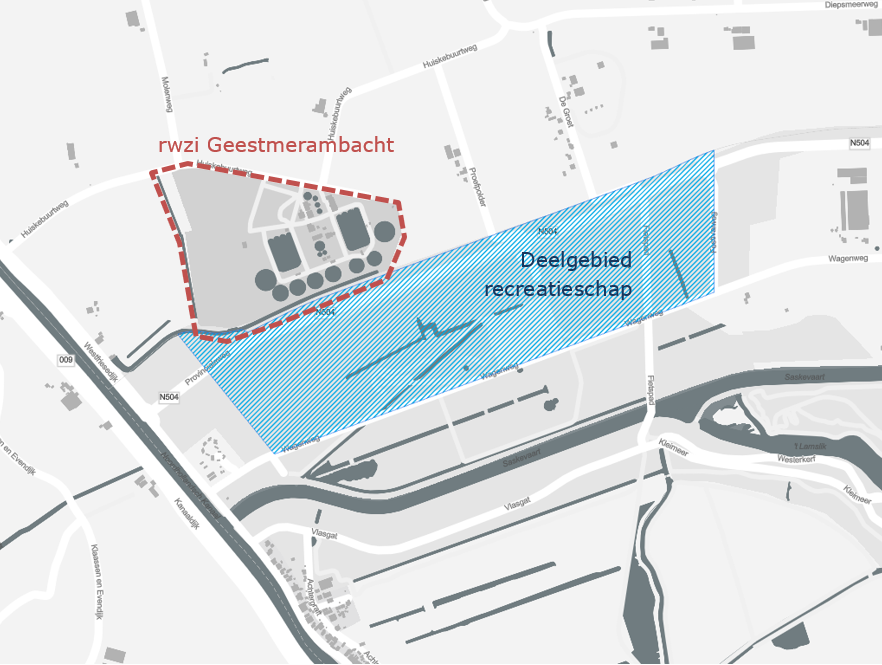Wind energy for the Geestmerambacht wastewater treatment plant
In order to make the sewage treatment process more sustainable, the water board wants to install one or two wind turbines at the Geestmerambacht sewage treatment plant. The wind energy generated will enable the plant to meet its own electricity needs.
Another project at the Geestmerambacht wastewater treatment plant is the construction of a fermentation plant for sewage sludge with green gas production. This will turn the Geestmerambacht wastewater treatment plant into a so-called energy and raw materials factory, which will produce electricity and green gas, among other things.
What's going to happen?
As a social partner in the regional energy strategy (RES), the water board is contributing to the goal of generating more sustainable energy in the province of North Holland. Due to its location, the Geestmerambacht wastewater treatment plant is suitable for generating wind energy. In addition, the treatment plant is a major consumer of electricity, so that most of the wind energy can also be used directly. The plan is to generate approximately 8 million kWh with one or two wind turbines.
Where is the project taking place?
The location for the wind turbine(s) will be considered to be both the treatment site itself and a sub-area of the Geestmerambacht recreation area to the south of it.

Project planning
We will investigate which type of turbine is suitable, what the most optimal location is, and what effects this will have on the environment. Initiating a participation process with local residents is also part of the project.
At this moment, there is no exact schedule for the project. We are also dependent on the situation on the electricity grid for construction. For example, there is currently grid congestion, which means that it is not possible to feed energy back into the grid.
Who do we work with?
We are working together with various parties, such as the municipality of Dijk en Waard, the municipality of Schagen, the province of North Holland, and the North Sea Canal Area Environmental Service. At this stage of the project, we would also like to keep local residents and stakeholders in the vicinity of the treatment plant informed of the current situation.
Want to know more?
For more information about this project, please contact Ms. M. Kleijn, environmental manager for wind energy at the Geestmerambacht wastewater treatment plant, via our contact form or via the water board's general telephone number: 072 - 582 8282.
Background
Climate and Energy Program (KEP)
In 2017, HHNK set itself the goal of becoming energy neutral and no longer emittingCO2. In doing so, the water board wants to contribute to the Paris climate goals of 2015, where it was agreed to limit global warming to a maximum of 1.5°C. In order to generate as much energy as we consume, we are focusing on the installation of solar panels, the realization of wind energy, and the production of biogas through sludge fermentation. In addition, we are making every effort to reduce energy consumption.
Regional Energy Strategy (RES)
The national government wants to achieve an energy transition and become less dependent on natural gas through the national Regional programme . To this end, the Netherlands has been divided into 30 energy regions that must collectively generate 35 TWh of sustainable energy on land. As a co-government, HHNK is participating in the RES process in the regions of North Holland North (NHN) and North Holland South (NHZ). On the one hand, by implementing its own sustainable energy generation projects and, on the other hand, by making land available for the energy transition.